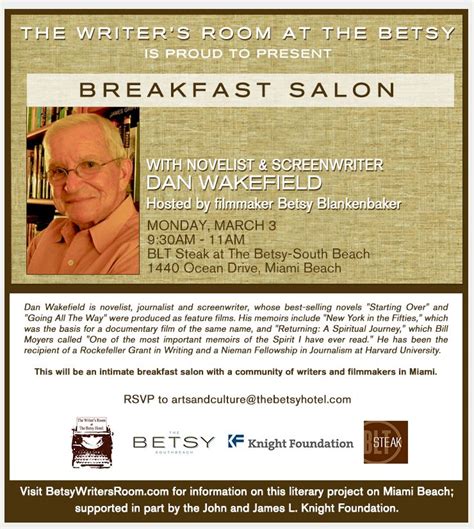A Quote by Percy Bysshe Shelley
Life and the world, or whatever we call that which we are and feel, is an astonishing thing. The mist of familiarity obscures from us the wonder of our being. We are struck with admiration at some of its transient modifications, but it is itself the great miracle.
Related Quotes
A work of art... is not a living thing... that walks or runs. But the making of a life. That which gives you a reaction. To some it is the wonder of man's fingers. To some it is the wonder of the mind. To some it is the wonder of technique. And to some it is how real it is. To some, how transcendent it is. Like the 5th Symphony, it presents itself with a feeling that you know it, if you have heard it once.
The one and only formative power given to man Is thought. By his thinking he not only makes character, but body and affairs, for as he thinketh within himself, so is he. Prejudice is a mist, which in our journey through the world often dims the brightest and obscures the best of all the good and glorious objects that meet us on our way.
If we define a miracle as an effect of which the cause is unknown to us, then we make our ignorance the source of miracles! And the universe itself would be a standing miracle. A miracle might be perhaps defined more exactly as an effect which is not the consequence or effect of any known laws of nature.
Aristotle said that philosophy begins in wonder. I believe it also ends in wonder. The ultimate way in which we relate to the world as something sacred is by renewing our sense of wonder. That's why I'm so opposed to the kind of miracle-mongering we find in both new-age and old-age religion. We're attracted to pseudomiracles only because we've ceased to wonder at the world, at how amazing it is.
Worship is to feel in your heart and express in some appropriate manner a humbling but delightful sense of admiring awe and astonished wonder and overpowering love in the presence of that most Ancient Mystery, that Majesty which philosophers call the first cause, but which we call our Father which art in heaven.
On the Bigotry of Culture: : it presented us with culture, with thought as something justified in itself, that is, which requires no justification but is valid by it's own essence, whatever its concrete employment and content maybe. Human life was to put itself at the service of culture because only thus would it become charged with value. From which it would follow that human life, our pure existence was, in itself, a mean and worthless thing.
There is an anaesthetic of familiarity, a sedative of ordinariness which dulls the senses and hides the wonder of existence. For those of us not gifted in poetry, it is at least worth while from time to time making an effort to shake off the anaesthetic. What is the best way of countering the sluggish habitutation brought about by our gradual crawl from babyhood? We can't actually fly to another planet. But we can recapture that sense of having just tumbled out to life on a new world by looking at our own world in unfamiliar ways.
There is a great deal too much in the world, of the "heavenly-mindedness" which expends itself in the contemplation of the joys of paradise, which performs no duty which it can shirk, and whose constant prayer is to be lifted in some overwhelming flood of Divine grace, and be carried, amidst the admiration of men and the jubilance of angels, to the very throne of God.
I write about heroes all the time, and I'm struck by how much of what fills us with wonder in the man-made world was the brainchild of a monster. I mean, slaves built most of the ancient wonders, our city skylines are dominated by the product of sometimes very ruthless capitalist ideals. There's a horrifying thought that I often wonder, which is, are monsters sometimes necessary?
We feel that we have to be right so that we can feel good. We don’t want to be wrong because then we’ll feel bad. But we could be more compassionate toward all these parts of ourselves. The whole right and wrong business closes us down and makes our world smaller. Wanting situations and relationships to be solid, permanent, and graspable obscures the pith of the matter, which is that things are fundamentally groundless.
I’m writing this in part to tell you that if you ever wonder what you’ve done in your life, and everyone does wonder sooner or later, you have been God’s grace to me, a miracle, something more than a miracle. You may not remember me very well at all, and it may seem to you to be no great thing to have been the good child of an old man in a shabby little town you will no doubt leave behind. If only I had the words to tell you.
Pain itself can be pleasurable accidentally in so far as it is accompanied by wonder, as in stage-plays; or in so far as it recalls a beloved object to one's memory, and makes one feel one's love for the thing, whose absence gives us pain. Consequently, since love is pleasant, both pain and whatever else results from love, in so far as they remind us of our love, are pleasant.






































